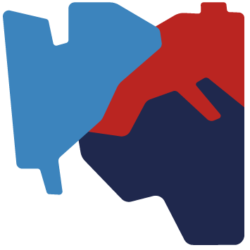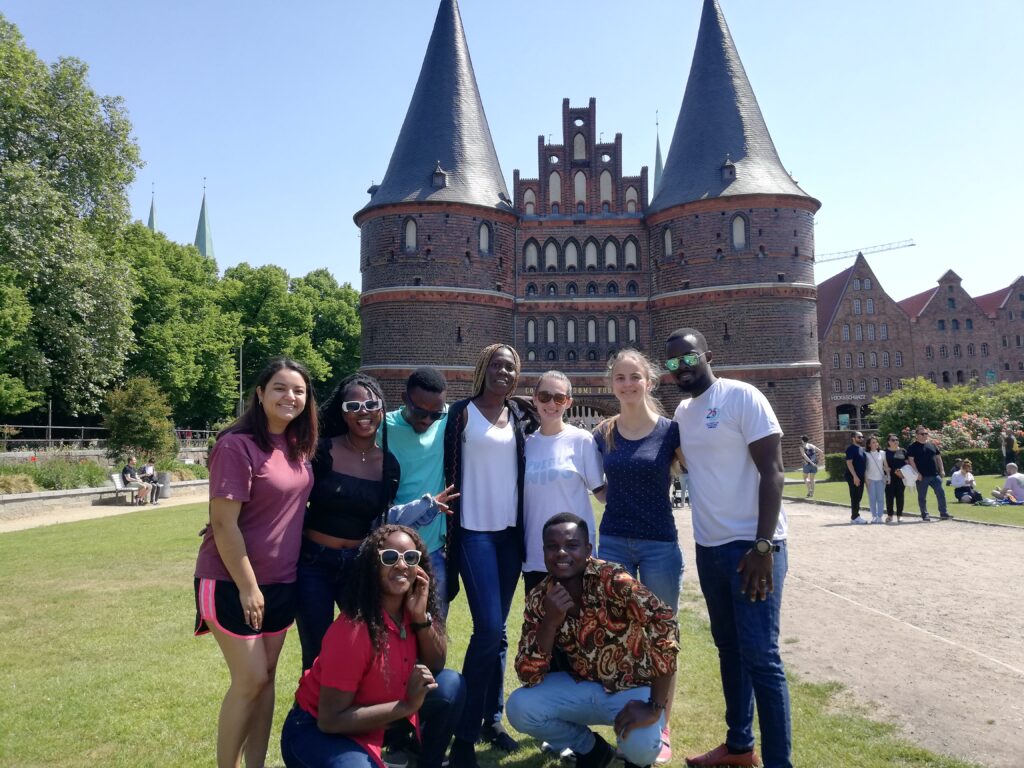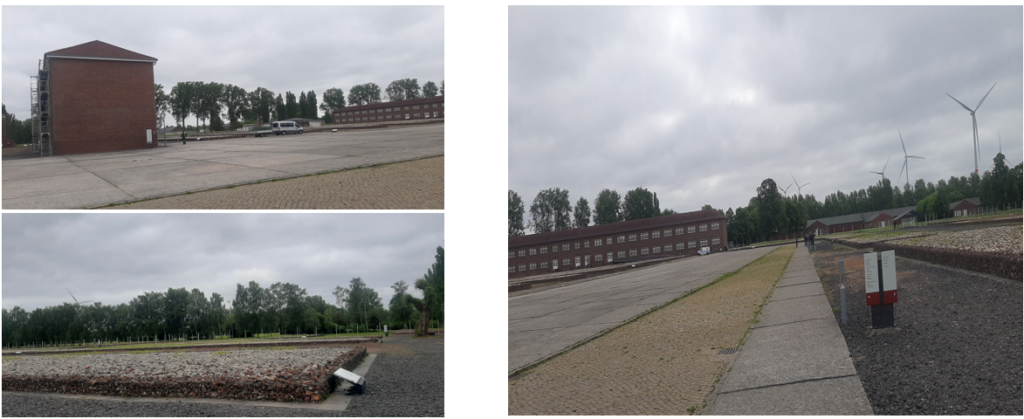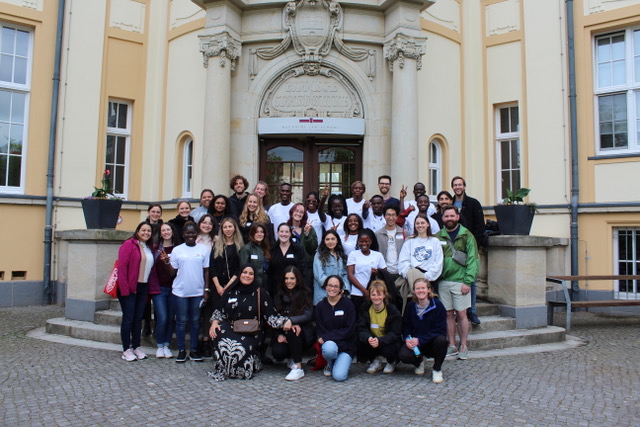This was the last week at the Germany study camp and so not many engagements were organized for us as a group since we had to wrap things up at our school of observation and with our host families. This notwithstanding, we have on here a concise report of our group engagements at the Germany study camp of this week.
Song share event
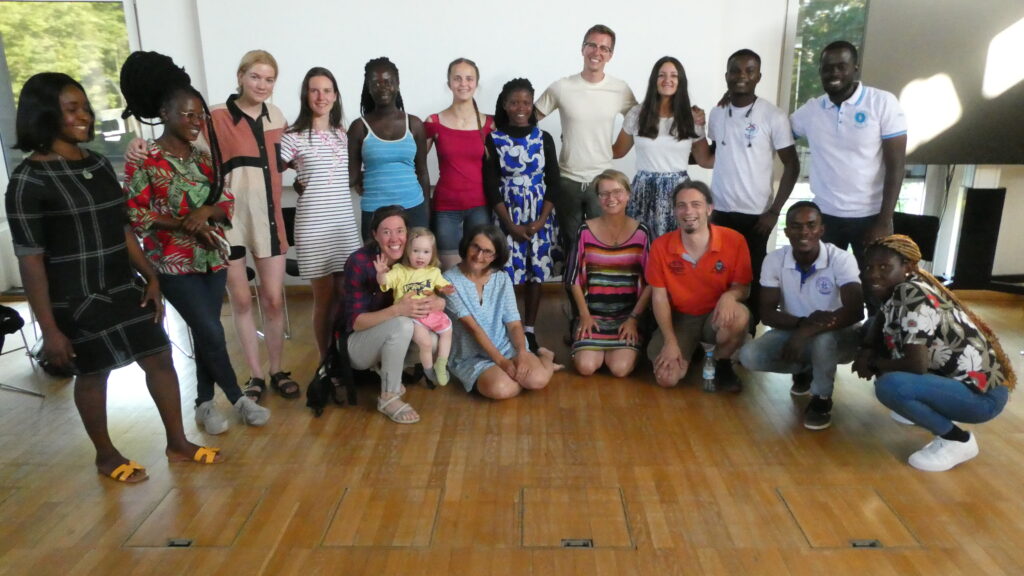
On the 12th of June, 2023, a Monday, after our scheduled school observation engagement and although not mandatory, we (2023 university of Education, Winneba-Tricontinental Teacher Training Exchange Programme participants) joined Dr. Anja Wilken’s song share event from 6:00 pm to 8:00 pm at Room 221 of the Asia-Africa-Institute building. We had the opportunity to teach them our school anthem and one popular fante gospel song, learnt various songs of theirs and together created a unifying song which comprises of the German, Spanish, Twi and English language; the content of the song basically conveys the message of sameness, in that, no race is superior or inferior in comparison. That, regardless of our skin colour, we are one people. The day’s activity began with a voice reviving session where Dr. Anja led us to sing a song made with the names of numbers from one up to ten both in English language and in Twi language. Ascendingly, we began from one up to ten and then quickly descended from the number we ended on to the last number.
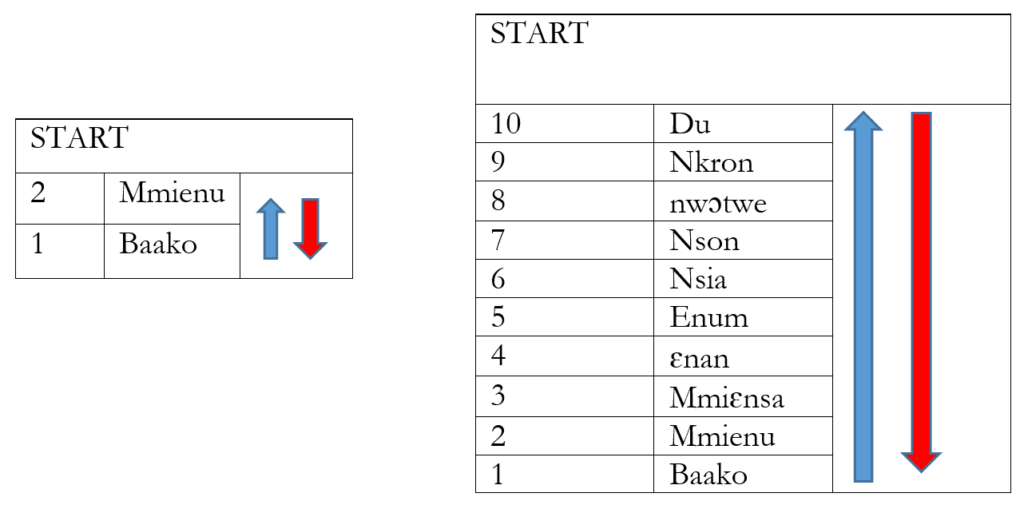
Right after the voice reviving session, Dr. Anja led us to sing the unifying song. She divided us into groups of different voice pitches or vocal ranges: alto, mezzo-soprano, bass and tenor as we learned how to sing the song and after a near perfection of singing, she recorded us singing the song. A recording of us singing was done throughout our singing session; every song we sang was recorded. We (the 2023 UEW-TTT participants), led by Emmanuella then proceeded to teach the group the UEW song and the meaning of the song as we sung. The UNC-TTT (University of North Carolina, Chapel Hill) leader, Taylor Schmidt, also taught us their school song after which, we, the 2023 UEW-TTT participants led by Emma taught the group another song titled “N’ahendzi Fata No”. Dr. Anja led us to the closure of the programme by teaching us a new song titled “Veloma Masina”. After all was done, we said our last goodbyes to the various participants of the song share event and we took photographs as a memory.

A meeting with Prof. Dampson

On the 13th of June, 2023, we, the 2023 UEW-TTT participants met with Prof. Dandy Dampson for the first time at the Germany study camp to reflect on our journey and experiences gained up to that moment, starting from how we got to know about the programme up to the moment of arriving at the study camp, which required a detailed account of how we got to know about the programme; how we were selected to be part of this year’s TTT exchange programme: processes that we went through to be selected; our challenges at the commencement of the programme through to the end of the programme, that is from the period of the Digital Meeting Point (DMP) then to the period of engagements at the Winneba study camp through to our engagements at the Germany study camp; what kept us going: the factors that made us press on and not give up along the way; the kind of relationship that existed between us and our host families and for those of us who did not have host families, how we were able to adjust and adapt to the unfamiliar settings to have a comfortable stay or if there were challenges due to us not having host families and having to lodge at a hostel; our experience with our buddies during the DMP period, at the Winneba study camp and now at the Germany study camp; some of the cultural shocks we had in Germany; the things that are quite different from what we know back at home and are impacting our lives or which have changed our perspective of teaching and to an extent our view of life, then, the new thing(s) we are taking with us to foster smooth engagements of our future endeavours, lastly, we suggested some key factors that can additionally help or be done to ensure the progress of the programme.
We were then applauded by Prof. Dandy for our level of commitment and hard work in making this year’s programme a success. He then ended the meeting with words of advice and encouragement, admonishing us to make good use of the experiences gained from this programme so as to contribute our quota to the world’s vision of providing high quality and lifelong education. Presumably, this engagement was crucial to ensure sustainability of the programme since our responses will necessitate in depth reflection and evaluation of the overall activities of the programme to make substitutions where needed and also add some pertinent and brilliant ideas or engagements that will foster the longevity and sustainability of the programme.
The last seminar

Just like the ending of every programme may be; reflecting and encapsulating all the happenings during the entire event so as to deduce the salient and essential phenomena, so did this last reflection seminar of the TTT programme at the Germany study camp intend to be. On the 14th of June, 2023, at about 3:00pm, all participants and coordinators of the programme met at the Faculty of Education block to summarise all our observations and experiences by concretizing all ideas, opinions and views through the use of realistic images, artifacts or any object to aid visualization which will foster a higher level of comprehension. In a bid to stimulate ourselves and foster coordination and critical thinking skills, the day’s event began with a particular raucous team building rope game, specifically the moving the box game where all persons around held on to each stretch of an interconnected rope in a circular formation to retrieve any of the objects placed in the centre of the formation and place it on the top object in order after a successful retrieval without anyone touching the ground. After that, the various activities for the day’s event were made known to us and then we proceeded to kick-start the first activity or engagement outside the faculty block.

The first activity began with each member of the first group of common opinion or view of their identified or observed distinctiveness, similarity and variations among the three countries’ (Ghana, Germany and USA) educational pedagogies, policies, practices, methodologies and instruments, each group being called to stand in front of all persons gathered, each member of each group was made to pictorially and concretely express their views and observation about the similarity, distinctiveness among the three countries’ educational system and practices.
Immediately after this engagement, manila cards or papers were pasted on the wall for all persons to inscribe their suggestions or recommendations, challenges and insight gained during the observation and reflection period.

We then proceeded to the final activity inside the meeting room where all groups had their pictures concretizing their view of each of the three countries’ remembrance and commemoration culture. In rotation, each of the groups moved in succession from one point to the other leaving behind one representative to pictorially explain the group’s view on the remembrance and commemoration culture of all the three countries.
The Farewell event at Hamburg

On the 16th of June, 2023, a Friday, the Tricontinental Teacher Training Exchange Programme at the Germany study camp officially came to an end which necessitated a celebratory event that will give all of us the chance and time to show appreciation to the programme coordinators, host families and participants for their time, dedication, show of love and for the opportunity to be part of this highly educative programme that has had great positive impact on our lives and has shaped our view on education. And also to revisit the memories and bond created and assure ourselves of our effort to ensure the sustainability of the relationship created. The programme started at exactly 5 pm and it included all participants, alumni, all coordinators and host families. Before the programme officially began, various songs from diverse countries were played and there was the provision of food and drinks for everyone to refresh themselves with. Not too long from the casual starting time, Prof. Telse Iwers addressed the house and she informed of the purpose of the various brown envelopes pasted on the wall of the auditorium. The envelopes had on each of them the names of every one of us and in them anyone could leave their farewell message for anyone. Prof. Telse cautioned us from writing any derogatory message to anyone but rather the message should be in a form of compliment, advice, well wishes etc. After the address by Prof. Telse, the celebration continued for some time before the sharing of the certificates of participation started. Pictures were taken of each and every one during the sharing and collection of the certificates. After a while, Dr. Anja took over and ensured all participants together with their host families went outside to take pictures for memory purposes and it was all fun. After the picture-taking engagement, we all came back to the auditorium to continue the celebration. The rest of the evening was all merry and enjoyment till the last person left the room for the program to officially come to its successful end.

The last day at Hamburg
Indeed, there is time for everything: a time to embrace and a time to refrain from embracing. All too soon, the highly educative, engaging and exhilarating programme at the Germany study camp had come to an end and it was time for us to go back home to successfully complete our academic endeavor. Therefore, on the 18th of June, 2023, some of our host families, UNC-TTT coordinator: Taylor, some of our buddies and some friends from the DiCoT programme escorted us to the Hamburg airport at about 5:30 am. They patiently waited for us to go through all security scrutiny successfully before they left us to journey back home. Honestly, we have always been pleased and appreciative of the level of care and love shown to us by our host families, our buddies and the programme coordinators throughout our days at the Germany study camp but the level of astonishment and gratitude that emanated from seeing some of our host families, buddies, UNC-TTT coordinator: Taylor going all out in seeing to it that we had a smooth check-in process by helping us with our luggage, attending to the airline passenger service assistants on our behalf to clarify some confusion due to language barriers and waiting patiently for hours just to ensure our departure was smooth is beyond description. After we were all set, we together with our host families, buddies and Taylor took our last group photograph and bid our goodbyes. It was quite an emotional moment for us all.
At about 7:30 am we left Hamburg and arrived at Istanbul airport at about 11:50 am. We had to wait for about an hour and half at the Istanbul airport before we were able to see the boarding gate for Turkish airlines going to Accra. So we waited and at about 1:00 pm we got to see the boarding gate number displayed on their information screen which signaled the need to proceed to the security check point so as to board the flight on time. Quite unfortunately, we missed our way trying to locate the exact immigration check point to go through for scrutiny due to how huge the Istanbul airport is, having several immigration check points. However, after several minutes of struggle, we were able to find the immigration check point for the range of boarding gates which our boarding gate fell in. We arrived at Accra Kotoka International Airport at about 6:50 pm and waited for an hour to claim our luggage and then went through the final immigration scrutiny process afterwards. After all was settled and done, most of us were conveyed back to Winneba with the university bus while few of us went home to pick up some essential belongings needed for school before we went back to campus.

Reported by:
Nora, Paulina and Vincent
